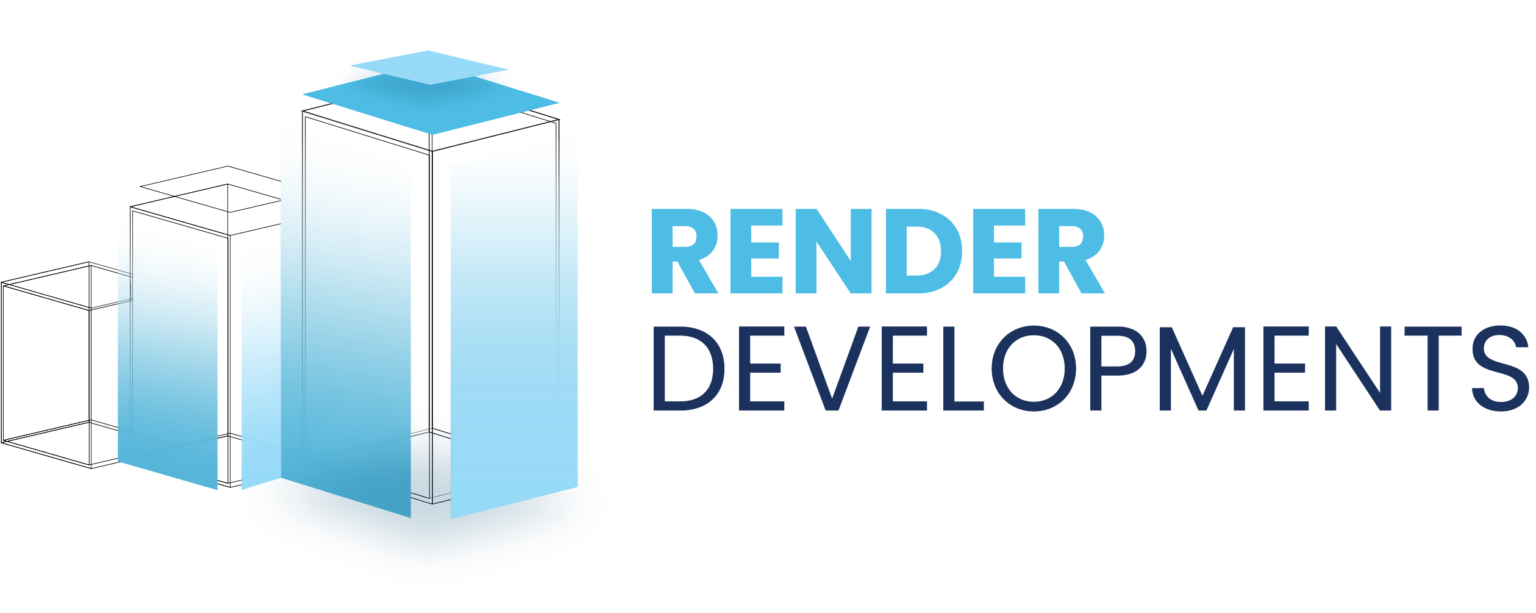Real estate developers worldwide are embracing virtual reality (VR) as a highly-effective strategy for optimizing the sales cycle in real estate. VR provides numerous opportunities at the pre-construction phase to customize features and deliver exactly what a buyer wants––it’s a win-win for every stakeholder.
Find out why this immersive technology is so valuable for real estate developers. As a world class real estate rendering company, we’re focusing our efforts on creating VR experiences to revolutionize the sales process for commercial and residential developments across North America.
VR Is Even Better Than The Real Thing
Imagine slapping on a headset and navigating through a house or condo that doesn’t exist. You can see the colour of the walls, the grain of the wood floors, the sheen of the kitchen backsplash. You notice the size of the windows and how the light comes in, the depth of the stairs, and the width of the bedroom (will your antique bed frame fit?). There’s no artificial point of reference to confuse matters. The point of reference is you––real flesh and bone––immersed in a real-time experience.
Pretty cool, right? Even if VR isn’t totally new to you, it’s continues to fascinate.
Now imagine you could alter certain aspects of that house. Throw up some drapes, lighten the floor and widen the wooden planks or switch the tiles for carpet, choose a matte countertop over the glossy one, put the ensuite on the other side of the bedroom. Now your interest piques because you get to dictate how things are going to go.
VR puts the user in full control of their experience, and from a psychological perspective, when we’re in control we feel empowered. Everyone wants that experience, and whether we’re deciding on paint colours, holidays, or careers, the freedom to choose can render us powerful beings (remember how important it was to your two-year-old self to have the red cup?)
VR Is About To BOOM
As a real estate developer, you know that investors and buyers have a keen interest in how a proposed development will appear fully realized. Details matter. How else would you attract them to fork over hundreds of thousands of dollars to something that doesn’t exist yet? Seems a little risky, and not just for them. You have a lot to lose too.
What you might not know is that mainstream use of virtual reality is about to boom. That means millions of people will be using VR as part of their normal, daily lives. While augmented reality (AR) participants currently outnumber VR users, the immersive technology of VR is growing in popularity as more businesses and consumers find value in its incredible range of possibility and opportunity.
While 2018 saw much slower growth than 2017 in regards to VR popularity, it’s certainly not a trend. Various sources are forecasting huge leaps forward for VR technology because it has profound potential to revolutionize the way we see––literally. Indeed, experts anticipate the VR market to grow from $7.9 billion in 2018 to $44.7 billion by 2024 (Research and Markets, 2019).
VR creates a digital environment that offers a synthetic, completely interactive experience with auditory and visual feedback. More sophisticated degrees of VR even give the user license to experience various possibilities within one experience (as seen in our videoclip).
VR Transforms Real Estate Development
In order to really understand the impact of such an experience on real estate development, let’s step back to the past for a moment.
In Real Estate Development of Yesteryear, potential buyers and investors relied on pictorial images, dollhouse-sized models, and swatches of floor, fabrics, carpets, and various other important pieces of material that comprise a house. They’d have to piece together an image, sort of like we put a puzzle together, to get a sense of what they were about to invest a small (or sometimes significant) fortune in. It’s akin to the way we used to take pictures. We’d look through the camera’s viewfinder, take a snapshot, and hope for the best. Current real estate development strategies aren’t much different. They rely hard on visualization.
But with VR finally starting to live up to its profound potential, it’s hitting the real estate development scene with a vengeance. The growth is owed to advancement in technology, huge investments in the VR market, and growing digitization (Research and Markets, 2019). In keeping pace with consumer interests, more and more real estate developers worldwide are embracing VR because it can have a transformative effect on the sales cycle.
The benefits to buyers are obvious:
They get a real-time experience through a realistic and interactive interface. They can decide right then and there what they want because they can see it just as they would if they were sitting in it. And further, they can experiment with different options to get a fully-customized view. They can add items, remove items, paint the walls a different color, reposition the shower, install a designer faucet with the clickety-click of a magical mouse, and more.
What are the benefits of VR to you as a real estate developer?
Investors. Buyers. Profits. Cash in your pocket. A reputation for stellar execution and buyer satisfaction.
And more––only 36% of businesses are actually implementing VR technology right now, but a whopping 64% are experimenting with it (Capgemini Research Institute, 2018). Further, experts anticipate that by the end of this year, more than 40 million people in the US will use VR (eMarketer, 2019). That means as a developer you have a huge competitive advantage as VR expands to mainstream.
See it for yourself, and encourage your potential buyers and investors to do the same. This impressive technology serves everyone. Slip into the future and offer your stakeholders what only few developers are right now––guarantees and real-time sensations, not predictions and antiquated imagery.
Contact Render Developments for a preview of the technology that’s going to refine your sales process, win you buyers, and boost your profits.
